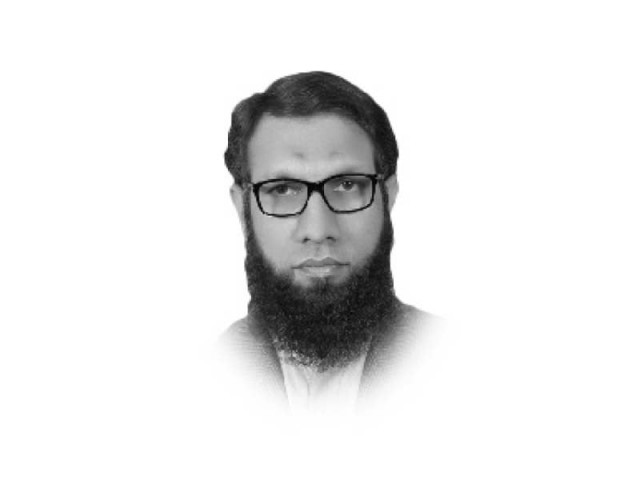Going backward or forward?
Political division has crept into every institution, economic meltdown is real, social polarisation is on rise

It has never been so depressing a situation in Pakistan since the Fall of Dhaka as it is now. Political division has crept into every institution, economic meltdown is real, and social polarisation is on the rise. What is even more heart-wrenching is the institutional confrontation that indicates that leadership, worth the salt, is conspicuous by its absence at all levels. The so-called leaders, who come in different shapes and sizes, are either seemingly busy hoodwinking the public with hollow slogans and clichés or they are completely disconnected from the ground realities or are uninterested in embracing the challenge and do something creatively different.
The 2024 general election in Pakistan has overshadowed any prospects for political stability that it was intended to bring! No political party seems happy with the election outcome, no independent observer believes its credibility, and everyone fears the worst to fall from the sky. Is this political and economic roller-coaster Pakistan’s fate crafted into its DNA that can never be modified or it is a product of some stupid quick fix and hodgepodge solutions to complex problems that otherwise require deep thinking? Is going back an option and a possibility, or moving forward with a different mindset and approach is really a now-or-never public demand?
One unexpected outcome of the election exercise is an overwhelming public verdict against the ‘business as usual’ politics. Despite unprecedented pre-poll political engineering, in which one political party was almost annihilated, and brazen post-poll manipulation of results, the people of Pakistan, from Karachi to Chitral, have said a big “no” to the top-down selection of parliament members. The earthquake-like verdict has not been honoured by now as the powers-that-be are too deeply entrenched to be altogether eliminated from political equation, yet the aftershocks are strong enough to bring a paradigmatic shift in civil-military relations.
What PTI accomplished in the election in the face of all odds is unprecedented and truly historic. Bear in mind that Imran Khan and the top-tier leadership was in jail or in hiding with no organisational structure intact to run an effective election campaign. However, the hangover effect of Imran Khan’s personal charisma, pro-poor policies, and anti-establishment stance pulled the public in droves for voting for his PTI.
The most striking and strategically vital thrust of Imran Khan has always been his rhetorical strength to connect the nation to its roots. His frequent reference to Islam, Iqbal, and Quaid-e-Azam in the context of rule of law, welfare state, and self-esteem acted as a binding force and a war cry in elections with social media spreading the message in all directions.
Some analysts contend that vote for the PTI-supported independent candidates was, in essence, a protest vote on the one hand and an expression of resentment on the other. The performance of the PDM’s 16-month-long government was the worst in history in terms of governance and economic management, not to mention the deteriorating security situation. Instead of reversing capital flight from the country, stopping the unprecedented brain drain, and reducing sky-rocketing prices, the coalition partners insisted on getting rid of PTI at all costs. Media was muzzled, dissenting voices were silenced, and May 9 was tactfully used to justify every oppression. People watched it in shock and horror but waited for the right time to express their anger which they did on February 8.
But the crisis is far from over! Apparently, the PTI has won more Nationally Assembly seats than the PML-N and PPP but it cannot form government at the Centre for many reasons including controversial results, legal/technical issues of reserved seats, and the possibility of PTI-supported MPs joining other parties. The coalition government led by PML-N will have its own predicaments and challenges — the biggest being the question of legitimacy — but the hardest one is a faltering economy which cannot be rescued without an extended IMF bailout programme, a cure which hits hard the common man. It is here that economy and politics would go on a collision course.
Does not all this demand that all stakeholders sit around the table and move forward with consensus on a true charter of democracy and charter of economy?
Published in The Express Tribune, February 25th, 2024.
Like Opinion & Editorial on Facebook, follow @ETOpEd on Twitter to receive all updates on all our daily pieces.
















COMMENTS
Comments are moderated and generally will be posted if they are on-topic and not abusive.
For more information, please see our Comments FAQ